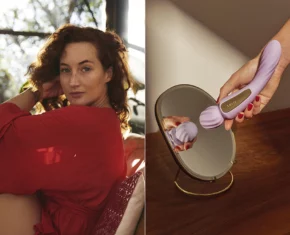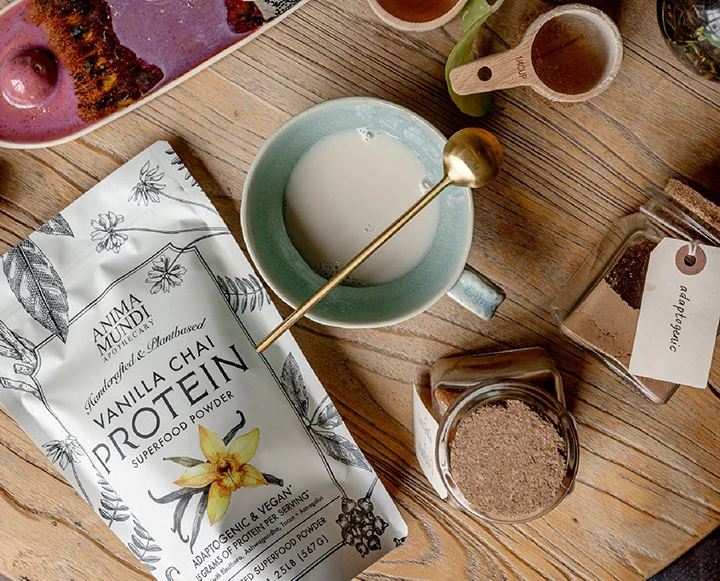Raise your hand if you’re regularly eating from a thriving edible garden. We knew there would be a good handful of you…this is The Chalkboard, after all. But if you find yourself in the produce-less majority – garden-less, but filled with aspiration – you’re in the right place.
Edible gardens and home farms are scratching an itch for many of us who may feel globally connected but not locally grounded; those of us who are well provided for by a myriad of food options, yet apprehensive about being completely dependent on giant businesses for our very sustenance. Pair those anxieties of modern-day living with the desire to eat cleaner, seasonal whole foods, and you’ve got yourself every good reason to plant your own garden.
Even here, deeply steeped in our green juice and essential oil-scented offices obsessing over holistic practitioners and every farm-to-form moniker we can find, we must admit that we have about half a garden between us as a team. At my apartment, not even a Topsy Turvy graces the balcony.
Blame it on our thriving L.A. farmer’s markets, our obsession with Summerland boxes, or just the general lack of urban green space, but our love for local, fresh, and clean foods is, as of yet, due to strong shopping skills, not our skill with a hoe and shovel.
But community gardens seem to popping up everywhere, edible yard designers we meet have blossoming careers, and the ever-popular new urban chicken coop is proof for one and all that growing one’s own food is a trend that’s here to stay – and one we’re behind one-hundred percent. The distance, however, between admiration, aspiration, and actually composting your way to a weeknight salad mix, is quite chasmic.
To help us bridge the gap, we spent part of last month getting one giant dose of farm and garden inspiration. Today, we’re sharing insights and images from our dreamy excursion to four Maui farms: an organic farm that feeds visiting diners (and a few top local restaurants) just steps from where their food is grown, a sustainable flower farm that also grows our favorite superfood, a 400-year-old taro farm, and a giant 400-acre organic farm with more varieties of tropical produce than we’ve ever tasted.
Walking these farms, chatting with these farmers, and seeing so much produce plucked fresh from the ground, our gardening aspirations were given a jolt of fresh inspiration. We may not be in the game to buy up tropical real estate or have 400 mainland acres of our own. We may not be ready to plant an avocado orchard the size necessary to fuel our avocado toast habit and digging into our backyard will likely not reveal a wealth of black volcanic soil, but the inspiring perspective and practical advice we received from our farm visits brought the whole home-harvest endeavor into utmost clarity.
Below you’ll find a few basic tips from a farmer we spent all day with. His name is Chuck Boerner and some call him the godfather of organic Hawaiian farming. As a consultant for farms around the globe, Chuck’s laid-back attitude and love for the land are infectious.
We joined Chuck for a day at home, up a winding stretch of treacherous jungle road in a house he built himself on 400 acres of solar-powered property. His Ono Farms grows coffee, bananas, coconuts, chocolate and every kind of tropical fruit you could ever think of. Over coffee he grew, roasted, and brewed himself, Chuck and his wife told us their stories. About going organic in the ’60s when it was still considered a farce, about their travels in Africa supporting sustainable coffee organizations, about the ‘woofers’ program they run on Ono through which a dozen teenagers at a time come and learn organic farming principles, among other valuable life lessons, as you might imagine. Sufficiently buzzed from a cup or two straight from the farm, we walked through orchards and fields with Chuck picking starfruits, mangoes, avocados, camu camu, and passionfruits – tasting every superfood we think we’ve ever spotlit and some we’ve never even heard of.
You could say visiting these four farms was like gardening therapy – the sweeping ocean views, forests of banana trees, shade-grown coffee, and farmhands fresh from the surf didn’t harm the cause either. From Ali of Malalo Protea Farm, pictured above among her tropical flowers and the wild horses, to the Boerner family with their surf-and-organic-turf lifestyle, the folks we met on our farm visits are living the dream – if your dream is to live on an island and grow your own tropical fruits and flowers and strong coffee. It is, right?
We hope that, in some way shape or form, the snapshots of life on these tropical farms will spur you on in your own plans to make a home garden a reality. Whether an herb box in the kitchen, some organic soil in a few raised boxes, or a hanging tomato plant, for goodness sake, we’re taking all this green inspiration and finding a way to grow some of our own food at home.
10 tips for home gardening beginners
Like it, plant it:
Plant what you like to consume. Be sure to focus on what you enjoy eating, drinking, using etc. Make your garden useful to you.
The Spice of life:
Plant a huge variety of what you like to consume: coffee, veggies, fruit, tobacco… whatever it may be. You’ll have different things to eat in different seasons and enough variety to keep you interested.
Breathing room:
Be sure to plant this huge variety of plants far enough apart from each other. Crowded fruit trees sometimes have to be chopped down when they mature and this is not easy to do. Think of the future, matured plants from the start.
Live with it:
Live in or very near your garden, farm or orchard. Consistency is key. I love the saying, “The best fertilizer is the farmer’s shadow.”
Play nice:
Recognize, feed and converse with your plants and the micro-organisms in the soil around their roots.
Read up:
Study and believe in every method of organic farming and gardening there is: biodynamic, permaculture, sustainable, Korean nature farming, etc. There is so much to be gained from these traditional methods and they’re all fascinating, all useful.
No worries:
If something does not grow very well for whatever reason, do not worry about it for a minute; stick something else in the hole!
Be a rebel:
If an expert or a friend says a certain thing “might not grow that well” in your area; do not worry about it, plant it anyway!
Harvest time:
Eat – and give to friends – from your gardens and orchards!
Love and be loved:
Love your friends, orchards and gardens; they will nurture you.













